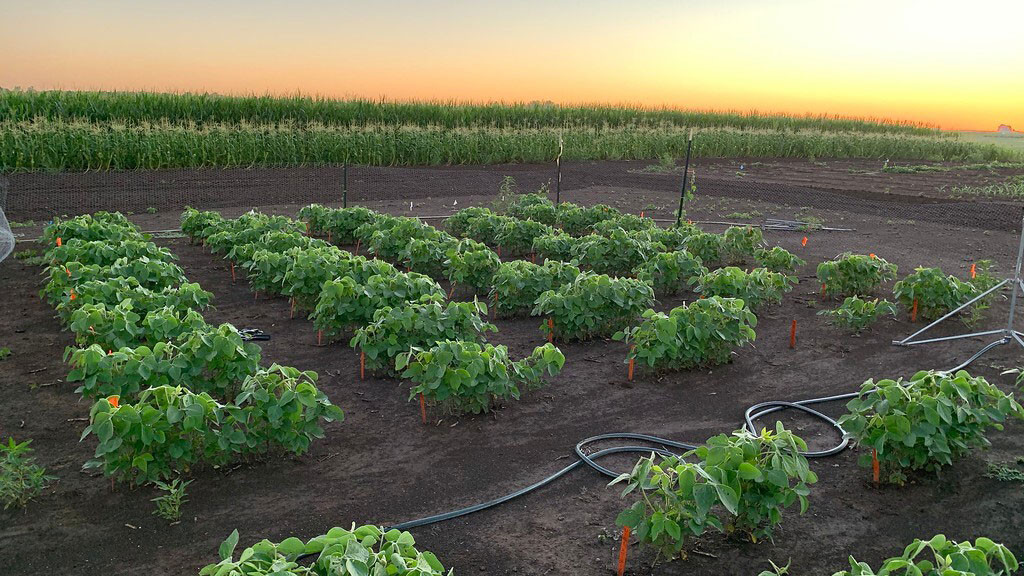Can we make photosynthesis more efficient?

Soybeans engineered by RIPE to better adapt to excess light are tested at the University of Illinois Energy Farm. Amanda De Souza/RIPE project
What if, actually, in some ways nature isn’t really as good at finding its way as we once thought? A recent piece in The New Yorker last month titled “Creating a Better Leaf” highlights an Illinois-based research project that argues “as remarkable as photosynthesis is, it needs to do better.” And if science can find a way to help nature find a better way by tinkering with photosynthesis and making it more efficient, there is promise that it can help address the world’s global food crisis.
To talk about the project and its potential ramifications, we were joined by its director.
GUESTS:
Stephen Long
Ikenberry Endowed University Chair of Crop Sciences and Plant Biology at the University of Illinois at Urbana-Champaign | Director the "Realizing Increased Photosynthetic Efficiency" (RIPE) project.
In her piece for the @NewYorker, @ElizKolbert writes about the RIPE project and our mission in tinkering with photosynthesis to prevent a global food crisis
— The RIPE Project (@RIPEproject) December 6, 2021
Read the story here: https://t.co/16nMohWPEF ���� pic.twitter.com/Jhg7QaIWI9
Prepared for web by Owen Henderson
Help shape our coverage on The 21st by joining our texting group and answering weekly questions. To join, text “TALK” to 217-803-0730 or sign up with your phone number below:

